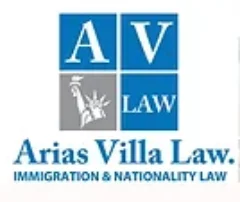The United States Circuit Courts of Appeals hear appeals from the district courts as well as appeals from decisions of federal administrative agencies. The immigration courts and the Board of Immigration Appeals (BIA) are federal administrative agencies. Therefore, the Circuit courts have jurisdiction over certain immigration appeals. In the United States, there are 93 judicial districts organized into 12 regional circuits. For instance, Florida and Georgia are part of the 11th Circuit Court of Appeals; California is part of the 9th Circuit Court of Appeals; and New York is part of the 2nd Circuit Court of Appeals, just to mention a few.
Once an alien’s case is decided by the U.S. Citizenship and Immigration Services (USCIS), it may be referred to an immigration court for removal proceedings (previously known as deportation proceedings). If the alien loses his case before the immigration court, he or she may appeal before the BIA (see our articles “Deportation Cases,” and “Appeals before the Board of Immigration Appeals”). If the BIA appeal is adverse to the alien and there is proper judicial basis for a federal appeal, the alien may file an appeal before the Circuit Court of Appeals where the immigration court that decided his/her case is located. For instance, if the immigration court in Miami decided the alien’s case, the court of appeals where the alien may file his/her federal appeal would be the 11th Circuit Court of Appeals; if the case was decided by a California immigration court, the appeal must be filed before the 9th Circuit Court of Appeals. A federal immigration appeal can only be filed 30 days after the BIA’s decision is rendered. If the appeal is not filed within these 30 days, the alien loses his/her right to file a federal appeal.
If an alien timely files a federal appeal, and wins, the case is remanded to the BIA for further processing. In the other hand, if the alien loses his federal appeal, his/her last recourse would be a petition for certiorari before the United States Supreme Court. Yet, must immigration cases do not have standing for a certiorari. Very few immigration cases have been certified for review by the United States Supreme Court. Thus, it is fair to say that, in the majority of cases, the federal appeal is the last judicial recourse for an immigration case.
Attorney Martha L. Arias represents clients in their federal appeal cases. She has successfully filed appeals before the 11th and 9th Circuit Court of Appeals. Indeed, attorney Martha L. Arias is admitted as a practicing counsel by the 11th Circuit Court of Appeals. Federal appeals are a very technical process that requires experience and knowledge of the appeal procedure rules. Attorney Martha L. Arias has the knowledge and expertise for these federal appeals. Yet, aliens must keep in mind that not all immigration cases may be appealed before the federal circuits courts.
Attorney Martha L. Arias will analyze your case and determine if a federal appeal is possible.

